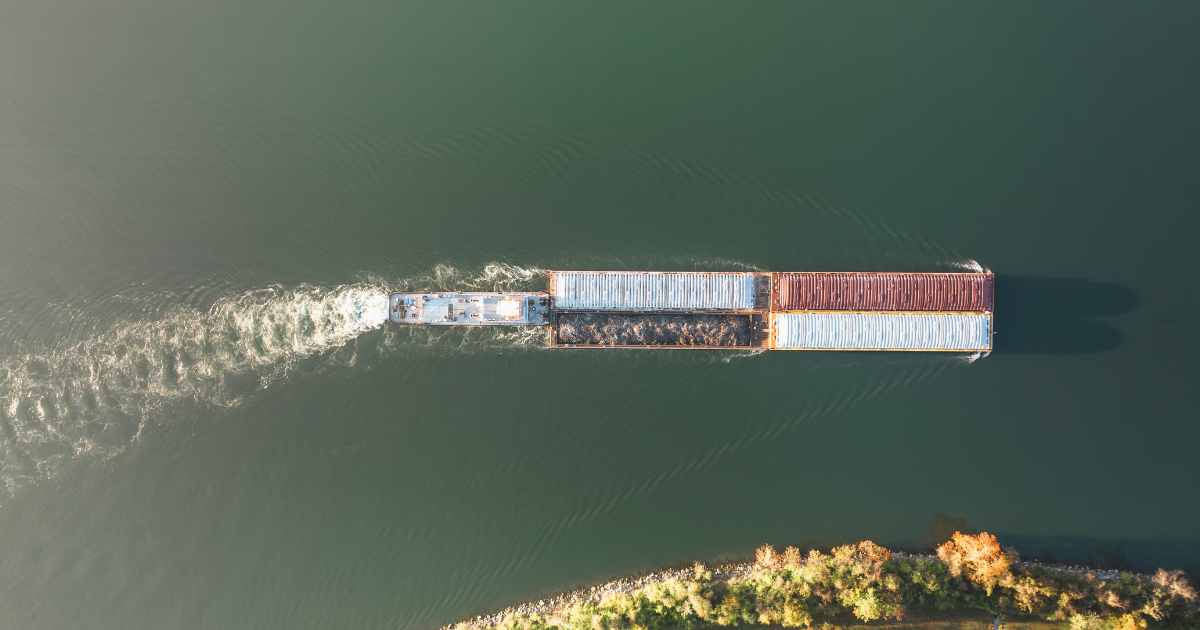Bloomberg Television Interview: How To Overcome Supply Chain Disruptions with AI and Predictive Procurement
It’s a tough time to be a supply chain executive. From a global pandemic and natural disasters to labor strikes and ongoing geopolitical tensions, supply chain disruptions often feel like the new normal for procurement professionals. Some economists described the current state of affairs as a series of ongoing disruptions and “controlled chaos.”
Last month, U.S. Eastern port strikes posed the latest threat to supply chains, creating the possibility of overwhelmed contingency routes, higher freight costs, and major delays.

Navigating Vulnerabilities in the Supply Chain
These black swan events are not only impossible to predict, they also bring severe consequences that expose serious vulnerabilities in global supply chains. Today’s executives face immense pressure to manage existing operations while also anticipating and mitigating these sudden risks.
In this volatile environment, traditional approaches to supply chain management are no longer enough to remain competitive. Companies that are slow to adapt can quickly find themselves at a disadvantage, losing access to critical materials, suffering production delays, and seeing their costs soar.
Highlighting the Solution: Arkestro CEO’s Interview with Bloomberg Television
Fortunately, a combination of AI, machine learning, and game theory offers a powerful solution to today’s challenges.
In fact, McKinsey recently named “new-frontier analytics and AI” the number one action CPOs should take to address the most pressing hurdles in procurement. According to McKinsey, predictive tools are vital in many ways, including:
- Strategic decision-making
- Commodity forecasting
- Risk assessment
- Performance optimization
- Talent sourcing
- Supplier negotiations
Arkestro CEO Neil Lustig recently spoke to Bloomberg Television to discuss this solution, explaining how AI and automation technology are helping businesses navigate current supply chain issues and maintain their competitive edge.
He said businesses that haven’t looked for alternative routes and strategies to black swan events like the port strikes are already falling behind their competitors. “If you haven’t figured this out yet, you’re a bit late,” said Lustig. “And longer term, your job is to figure out how to make yourself more resilient.”
Lustig said that in scenarios like these, the most important factor is adapting faster than competitors. “It’s a short-term bit, but speed matters,” he said.
He then went on to explain how Arkestro’s AI-powered predictive procurement platform helps proactively reroute shipments and secure alternative suppliers to mitigate disruptions.
Here we’ll dive into key points from the conversation, including the importance of speed and adaptability in maintaining a competitive edge during economic challenges.
How AI and Predictive Procurement Help Companies Stay Ahead
Automation technologies and AI-powered platforms like Arkestro give companies a competitive advantage by empowering them to tackle supply chain disruptions head-on.
These platforms combine data analytics with game theory, allowing businesses to:
- Make data-informed decisions
- Find alternative suppliers early on
- Reroute shipments before disruptions are even felt
With AI technology, companies gain the agility to respond to disruptions quickly and decisively.
Why Speed and Adaptability Is Crucial
Lustig likens the need for speed in procurement to the old joke about a bear chasing two people in the woods: “You don’t have to outrun the bear; you just have to outrun your buddy,” he said. In supply chain terms, this means the company that adapts fastest has a significant competitive advantage.
Capacity is limited, and there simply aren’t enough alternative suppliers or shipping channels for all the businesses that need them. So the faster businesses can pivot, the better their chances of securing the resources needed to keep their business running smoothly.
Examples from Arkestro Customers
Companies using Arkestro’s AI-driven platform can reach out to thousands of contractors and suppliers significantly faster than traditional methods. This ability to automate and accelerate processes that once took weeks or even months can make the difference between mitigating a disruption and falling behind.
Here are just a few examples of how increased speed and adaptability benefits businesses:
- A U.S. automotive manufacturer realized 34% savings per event
- A global engineering solutions company saved $12 million
- A U.S. construction company achieved 92% supplier participation in critical procurement events
The average Arkestro customer leverages AI to enhance speed and precision and shrinks the time spent running an event by 20%. This advantage allows them to run three times as many events as they could before and maintain agility in any business climate.
“Our customers are finding a job that would’ve taken nine months, and a dozen people can be collapsed into a job for three people that’s completed in three weeks,” Lustig said. “This is the kind of nimbleness that AI gets you broadly — and what Arkestro is doing for all of our customers [specifically.]”
Subscribe to news from Arkestro.
No spam, just relevant procurement news and tips. You can unsubscribe at any time.
Gaining a Competitive Advantage with AI
In an era of constant upheaval, the ability to quickly analyze data, automate decision-making, and execute contingency plans at scale is invaluable. This “procurement superpower” enables businesses to respond faster than their competitors, reducing losses and maintaining their competitive edge.
Companies that embrace AI-powered tools also have more time to think strategically about the future, better positioning themselves to weather the next disruptive event. As Lustig pointed out, resilience isn’t just about surviving the next crisis — it’s about thriving in a world where black swan events are becoming increasingly common.
AI and predictive procurement platforms like Arkestro help businesses do this by providing a more holistic and transparent view of their supply chains.
The Benefits
Here are some of the benefits realized when companies leverage AI, machine learning, and data analytics to optimize procurement processes:
- Increased cost savings: Predictive procurement tools analyze market trends, supplier performance, and historical data to help companies negotiate better terms with suppliers.
- Faster, data-driven decision-making: Real-time insights enable procurement teams to make quick decisions based on current market conditions, while automation eliminates time-consuming tasks.
- Increased supply chain resilience: Predictive analytics help companies identify potential disruptions and discover alternative solutions before they have an impact.
- Improved supplier relationships: By continuously monitoring supplier performance and automating processes, procurement tools allow businesses to address issues before they escalate and facilitate strong, stable supplier relationships.
With tools like Arkestro, procurement teams can proactively reach out to suppliers, secure alternative routes, and maintain close relationships with logistics partners. As quick movers, procurement can create a more robust and flexible supply chain that holds up to future challenges.

Emerging Stronger with Arkestro
Software like Arkestro can’t predict black swan events. But it can help businesses become more adaptable and agile in an era of increasing unpredictability.
By automating processes, leveraging data, and responding faster than competitors, companies that adopt AI and predictive procurement are better positioned to navigate the challenges of today and the future. They can minimize losses, seize new opportunities, and emerge from crises even stronger than before.
If you’re ready to navigate procurement disruptions with greater confidence, try Arkestro today. We’ll help you make your best buying decisions faster, across all categories of spend. Get started now to cut costs, run more events, and reach more addressable spend with the same resources.
FAQs
Supply Chain Disruptions
-
How does AI help companies overcome supply chain disruptions?
AI helps by enabling data-informed decisions, finding alternative suppliers early, and rerouting shipments before disruptions are felt, increasing speed and adaptability in response to challenges.
-
What are some examples of supply chain disruptions mentioned in the article?
The article mentions global pandemics, natural disasters, labor strikes, geopolitical tensions, and specifically highlights recent U.S. Eastern port strikes as examples of supply chain disruptions.
-
Why is speed crucial in dealing with supply chain disruptions?
Speed is crucial as it allows companies to secure limited resources and alternative suppliers faster than competitors, maintaining a competitive edge during disruptions.
-
How does Arkestro's AI-powered platform help businesses manage supply chain disruptions?
Arkestro’s platform helps businesses reach thousands of suppliers faster, automate processes, and shrink event run times by 20%, allowing them to run three times as many events and respond quickly to disruptions.
-
What are some examples of benefits achieved using Arkestro's platform during supply chain disruptions?
Examples include a U.S. automotive manufacturer realizing 34% savings per event, a global engineering solutions company saving $12 million, and a U.S. construction company achieving 92% supplier participation in critical procurement events.

